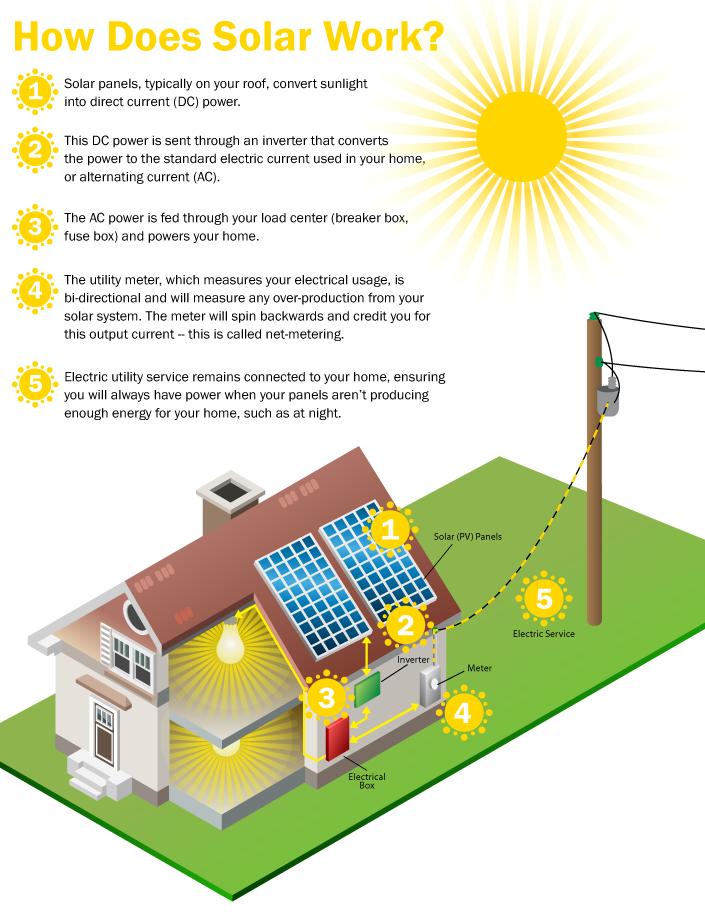English (United States)
While most people know what solar panels are, many aren’t aware of the complexity of setting up a complete solar power system or understanding the actual return on investment.
Contact your local public power utility to discuss the details of any solar project. They can provide an assessment on the proper project size, estimated costs and return on investment, best practices for installation, and how to select a reliable solar developer.
* Suggested if system also involves a battery storage component
For a directory of available solar installers, view our Solar Trade Ally Network. (Note: we do not endorse any of these providers.)
In Nebraska, the state net metering law allows customers the opportunity to sell excess energy their solar power system generates back to the customer's local electric utility. For customers who are considering installation of a solar power system and utilizing net metering, contact your local utility at least sixty days prior to installation and are responsible for all costs associated.
For more information, reference our net metering annual report, or contact us at 1-877-ASK-NPPD (275-6773).
